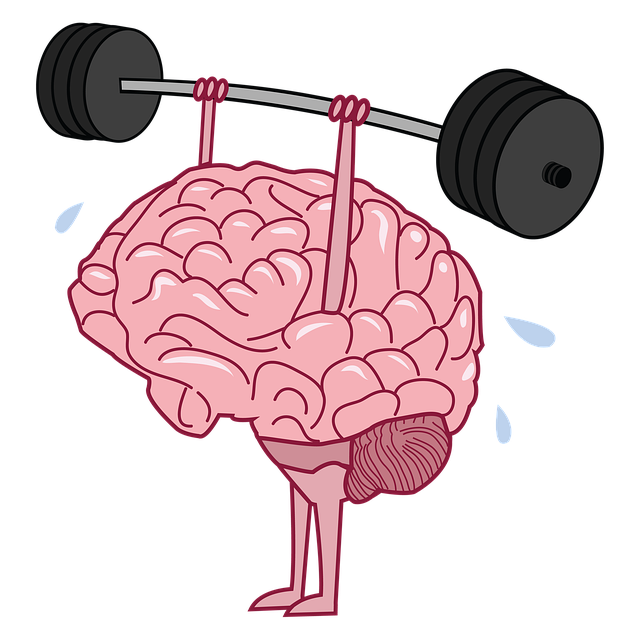Denver's Crisis Intervention Teams (CITS) are transforming alcohol abuse therapy by providing immediate, tailored support using self-care and compassion cultivation techniques. These specialized teams disrupt addiction cycles, teach coping strategies, improve mental well-being, and enhance crisis navigation for diverse residents. Robust CIT training in Denver should focus on early crisis detection, evidence-based de-escalation, cultural sensitivity, and public awareness campaigns to address systemic issues. Regular debriefings, mock drills, and feedback ensure the program's effectiveness and continuous improvement. Long-term benefits include resilient communities, reduced stigma, enhanced early intervention, improved access to care, and lower rates of recurrent crises in Denver's mental health landscape.
“Crisis Intervention Team (CIT) training programs are transforming the way Denver addresses alcohol abuse and mental health crises. This article delves into the critical role these teams play, exploring their impact on Denver’s alcohol abuse scenery. We examine the need for specialized CIT training, highlighting key curriculum components and real-world benefits. Additionally, we discuss challenges and long-term effects, providing insights into how these programs build resilient communities through enhanced Denver alcohol abuse therapy.”
- Understanding Crisis Intervention Teams: Their Role and Impact in Denver's Alcohol Abuse Scenery
- The Need for Specialized Training Programs: Equipping Professionals for Effective Response
- Key Components of a Comprehensive Crisis Intervention Team Training Curriculum
- Benefits and Challenges: Real-World Application and Continuous Improvement Strategies
- Building Resilient Communities: The Long-Term Effects of CIT Training in Denver's Mental Health Ecosystem
Understanding Crisis Intervention Teams: Their Role and Impact in Denver's Alcohol Abuse Scenery

In Denver, where alcohol abuse has been a persistent issue, Crisis Intervention Teams (CITS) have emerged as a vital resource in addressing this crisis. These specialized teams consist of trained professionals who provide immediate and effective support to individuals experiencing severe emotional distress or substance abuse episodes. By integrating self-care practices and compassion cultivation techniques, CITS members offer guidance tailored to each person’s unique needs.
The impact of these programs is profound; they not only help individuals navigate their crises but also foster long-term recovery. Denver Alcohol Abuse Therapy benefits significantly from CITS, as they disrupt the cycle of addiction by providing a safe space for expression and healing. Through crisis intervention guidance, participants learn coping strategies, gain insights into their behaviors, and develop resilience, ultimately improving their mental well-being and quality of life.
The Need for Specialized Training Programs: Equipping Professionals for Effective Response

In today’s complex social landscape, the demand for specialized training programs has become increasingly crucial in equipping professionals to respond effectively to crises. Crisis intervention team training is no longer a luxury but an essential component of mental wellness support, especially in urban centers like Denver where issues such as alcohol abuse therapy are prevalent. The rise in community-based challenges necessitates that healthcare providers, first responders, and support staff possess the skills to navigate intricate situations with empathy and professionalism.
Specialized training programs focus on developing inner strength and cultural competency among participants. These initiatives ensure that individuals from diverse backgrounds can offer tailored support, fostering understanding and connection during critical interventions. By investing in such programs, communities like Denver can enhance their ability to address a range of issues, promoting improved mental wellness outcomes for all residents.
Key Components of a Comprehensive Crisis Intervention Team Training Curriculum

A comprehensive crisis intervention team (CIT) training curriculum should encompass several key components to effectively equip participants for real-world scenarios. Firstly, it must emphasize the importance of early identification and assessment of crises, teaching teams to recognize subtle signs and symptoms across various contexts, including Denver Alcohol Abuse Therapy settings. This includes training in risk assessment tools and strategies to ensure every team member can contribute to a thorough evaluation.
Secondly, CIT training should delve into evidence-based de-escalation techniques tailored for high-stress situations. By promoting active listening, empathy, and clear communication, teams can defuse tension and create a safer environment. Additionally, incorporating role-playing scenarios allows participants to practice these skills in simulated crises, fostering confidence and improving their ability to support individuals experiencing mental wellness challenges or struggling with inner strength development. Public awareness campaigns development should also be integrated, equipping teams to recognize and address the impact of systemic issues on crisis interventions.
Benefits and Challenges: Real-World Application and Continuous Improvement Strategies

Crisis intervention team training programs play a pivotal role in equipping professionals with the skills to navigate and mitigate high-pressure situations, especially when dealing with issues like Denver Alcohol Abuse Therapy. These programs offer numerous benefits, including enhanced preparedness, improved response times, and better equipment for managing crises. By providing practical, real-world application scenarios, trainees gain invaluable experience, boosting their confidence in handling critical incidents effectively.
However, challenges exist, particularly in maintaining a dynamic training environment that reflects diverse, evolving crisis scenarios. Cultural Sensitivity in Mental Healthcare Practice is a key consideration, as teams must be adept at addressing unique cultural needs and backgrounds. Positive Thinking and Self-Awareness Exercises are integral to continuous improvement strategies, fostering an atmosphere where team members can reflect on their experiences, learn from them, and adapt their approaches accordingly. Regular debriefings, mock drills, and feedback sessions ensure the program stays relevant, allowing for ongoing refinement of crisis intervention techniques.
Building Resilient Communities: The Long-Term Effects of CIT Training in Denver's Mental Health Ecosystem

In Denver’s mental health ecosystem, Crisis Intervention Team (CIT) training programs have shown remarkable long-term effects in building resilient communities. These initiatives equip first responders, healthcare professionals, and volunteers with essential skills to handle crisis situations involving individuals experiencing mental health disorders or substance abuse, such as Denver alcohol abuse therapy. By participating in CIT training, community members gain a deeper understanding of mental illness, fostering empathy and reducing the stigma associated with seeking help. This not only enhances their ability to de-escalate potentially dangerous scenarios but also encourages early intervention and access to appropriate care.
The positive impact extends beyond immediate crisis resolution. Regular Self-Awareness Exercises and Burnout Prevention strategies incorporated into CIT training empower individuals to cultivate inner strength and resilience. Over time, this translates into better coping mechanisms for both the helpers and the community at large. As a result, Denver’s mental health landscape is transformed, with enhanced support systems and reduced rates of recurrent crises. Such initiatives underscore the power of community engagement in fostering holistic well-being, where individuals are equipped not just to survive but to thrive despite challenges.
Crisis Intervention Team (CIT) training programs play a pivotal role in enhancing Denver’s approach to alcohol abuse therapy. By equipping professionals with specialized skills, these programs empower them to effectively respond to mental health crises in our communities. The long-term benefits are evident in the city’s improved ability to build resilient ecosystems, fostering better outcomes for those struggling with addiction. Through comprehensive training curricula and continuous improvement strategies, Denver is setting a standard for crisis intervention that can be replicated across various settings, ultimately reducing the impact of alcohol abuse on individuals and society at large.













